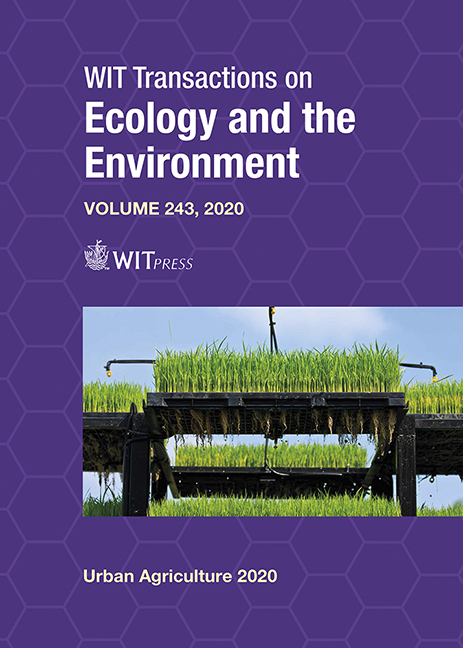LIFE CYCLE ASSESSMENT OF LEAFY VEGETABLE CONSUMPTION IN URBAN TAIPEI, TAIWAN
Price
Free (open access)
Transaction
Volume
243
Pages
12
Page Range
71 - 82
Published
2020
Paper DOI
10.2495/UA200071
Copyright
WIT Press
Author(s)
MING-HWI YAO, HUU-SHENG LUR, CHUN-HSIANG HUANG
Abstract
In recent years, due to economic development and urbanization, a stable supply of food resources has become a major factor in maintaining normal urban metabolism. However, urban expansion entails a reduction in the cultivable area and a reduced agricultural workforce. Thus, urban areas rely on rural areas for food supply. In this research, Taipei (Taiwan) was selected for investigating changes in the sources of leafy vegetables and the effect of such changes on the environment. The “life cycle assessment (LCA)” method was used to evaluate the effect of different origin-to-destination distances on the environment. The results demonstrated that increased transport distances not only increased energy consumption but also increased the effect on the environment, specifically with respect to the carbon footprint, eutrophication, and acidification. Furthermore, different cultivation methods, including protected, open-field, organic, and conventional cultivation, were compared to determine their environmental effects. The results indicated that the conventional cultivation method increased the carbon footprint by 15 times and energy consumption by 22 times compared with the organic cultivation method. Chemical fertilizer use in conventional cultivation is the main driver of this difference. Moreover, the protected cultivation method exhibited a 10–20 times higher impact on the environment than open-field cultivation for all the indicators in the life cycle assessment, of which its acidification index score was the most seriously problematic. Therefore, urban agriculture and organic cultivation could be promoted to make the best use of the limited land supply in the city and increase the self-sufficiency rate of leafy vegetables cultivation in urban areas and reduce the environmental impact caused by transportation and chemical fertilizer use.
Keywords
urbanization, urban metabolism, life cycle assessment, organic cultivation





